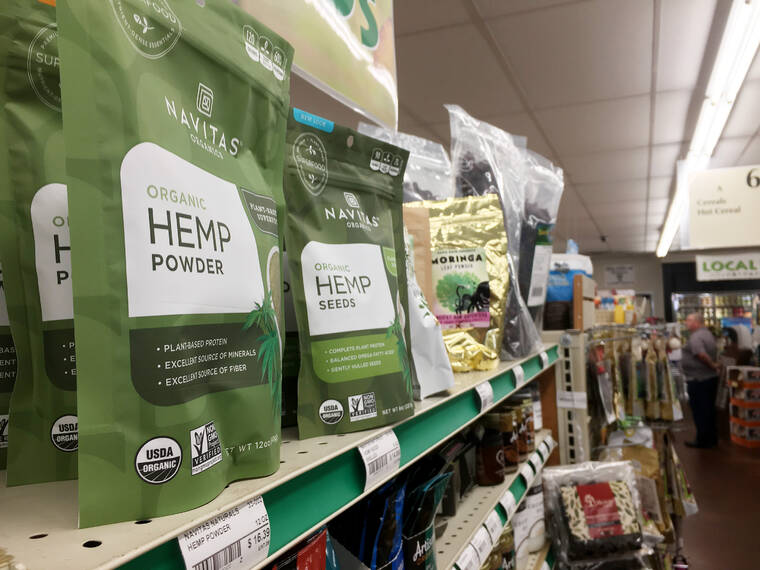Correction: An earlier draft of this article erroneously attributed to Gail Baber a statement that hemp-derived CBD can be used to produce medical marijuana products. Baber did not say this, as, federally speaking, hemp-derived CBD products with a tetrahydrocannabinol percentage of 0.3% or less are legally distinct from marijuana products. The Tribune-Herald apologizes for the error.
___
Hawaii hemp farmers hope a bill moving through the state Senate will finally allow them to affordably sell products here.
In late 2020, Hawaii’s industrial hemp pilot program came to an end, with the state adopting a hemp production program devised by the U.S. Department of Agriculture. Despite this, state regulations on hemp production and distribution have continued, leading to redundant regulations that make it prohibitively expensive for hemp farmers to sell products in the state.
Because of the lack of available fiber processing facilities in Hawaii, most hemp farmers in the state produce hemp to be processed into cannabidiol, or CBD, said Gail Baber, a Big Island hemp farmer and vice president of the Hawaii Hemp Farmers Association. However, most of the CBD products sold in Hawaii are not made with Hawaii-grown hemp.
“There are incredible barriers in place for Hawaii farmers,” Baber said. “For hemp farmers, we’re dying by a thousand cuts. The regulations don’t seem like a big deal individually, but the cumulative effect is enormous.”
Senate Bill 2986 attempts to solve the issue by removing duplicative regulations imposed by the state. In particular, the bill removes language requiring that hemp being transported within or from the state be subject to state movement reports, sampling, testing, and inspections, all of which are redundant to USDA requirements, Baber said.
“If you have to wait three days to submit a movement report, it’s a fast industry, and your buyers have moved on,” Baber said.
Hilo Sen. Laura Acasio, a co-introducer of the bill, said the doubled regulations have made it so that only the largest of producers — mostly located on the mainland — can afford to sell in Hawaii.
“Hopefully this will reduce the cost for Hawaii farmers and streamline all of that,” Acasio said.
Additionally, the bill updates labeling requirements for hemp products, requiring hemp sellers to identify the percentage of Hawaii-grown or -processed hemp in all hemp products.
Acasio said that, similar to the state coffee industry’s struggles with pretenders, some sellers have insinuated that their CBD products are “Hawaii-grown” despite containing as little as 10% of Hawaii-grown hemp derivatives.
But while Baber said she and the Hawaii Hemp Farmers Association are excited about the bill — she specifically praised Big Island lawmakers, including Acasio, for advocating for hemp farmers — they still have some concerns about its current draft. Although the current draft eliminates redundant inspections on hemp being transported, it does not remove the state Department of Health’s ability to inspect farms at its discretion.
“We don’t need a whole other system that’s just mimicking the federal one,” Baber said, explaining that the USDA already has the authority and ability to inspect farms as needed, and that Hawaii law enforcement can do the same in the event of health or public safety concerns. To subject farmers to inspections by DOH as well as USDA, Baber said, would be expensive for both farmers and the state and would not actually make anybody safer.
Furthermore, the bill as it stands does not do anything to prevent hemp becoming technically illegal in the state later this year. Act 14 of 2020, the bill that adopted the USDA hemp production program, included language that would repeal itself on June 30, 2022, rendering hemp illegal again. The state Department of the Attorney General submitted testimony recommending that SB 2986 include an amendment postponing that repeal until 2024.
A separate bill, Senate Bill 2973, would also extend Act 14 until 2024, but Baber said she opposes that bill because it does not address the other regulatory issues.
Email Michael Brstovansky at mbrestovansky@hawaiitribune-herald.com.




